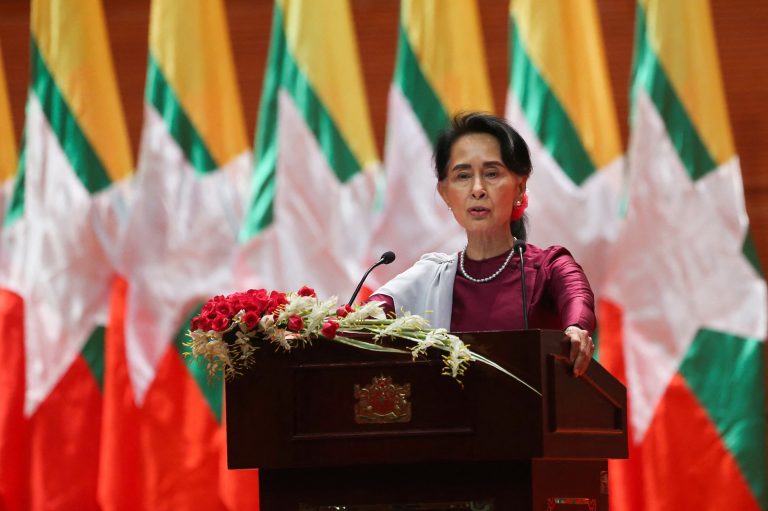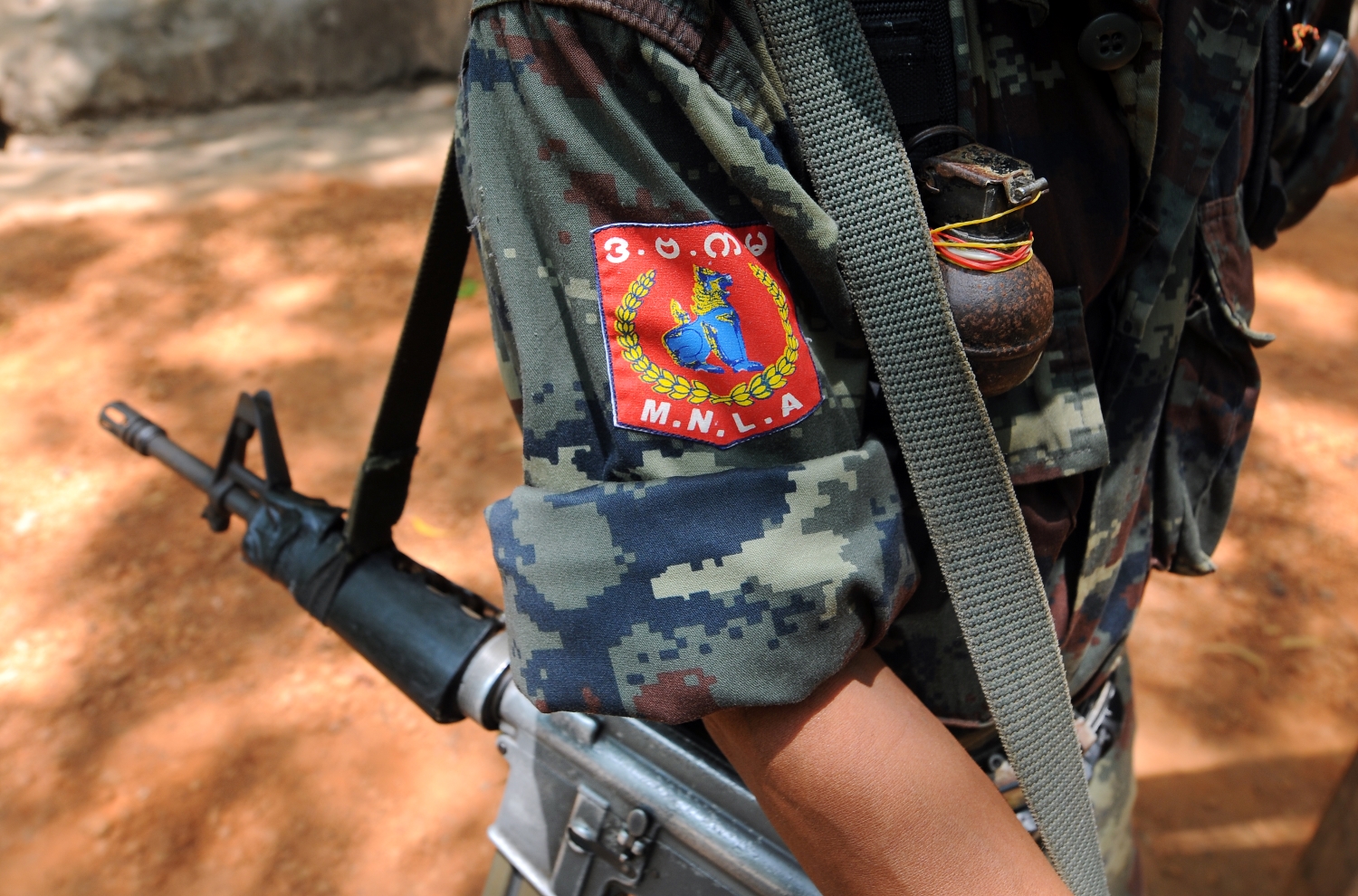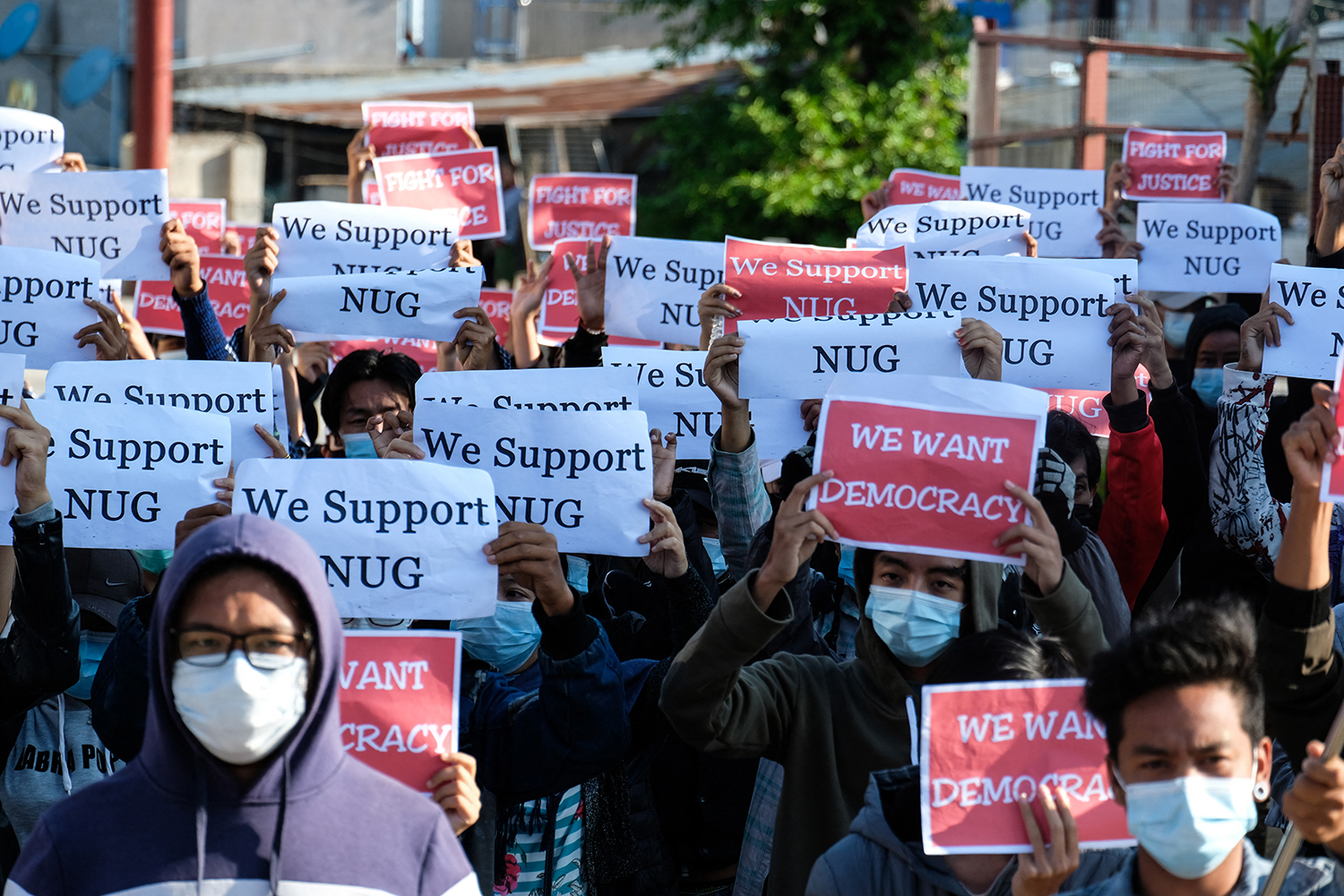Former student leaders have discussed forming a party to serve as an effective opposition against the NLD, but the nation has more important concerns.
By SITHU AUNG MYINT | FRONTIER
LEADERS OF the 88 Generation Peace and Open Society hosted a meeting of political activists in Yangon last month at which a decision was made to form an opposition party.
The meeting, at the Royal Rose Restaurant in Yangon’s Bahan Township on January 21, was attended by scores of activists, including veterans of political movements since 1962, when a coup ushered in more than 50 years of military rule.
A committee of about 40 people was created at the meeting to establish a party that would attract popular respect and function as an opposition.
The National League for Democracy’s overwhelming parliamentary dominance was also discussed at a separate meeting of the former ruling Union Solidarity and Development Party and allied groups on January 23. In an address to the meeting, USDP chairman U Than Htay accused the NLD of establishing a democratic dictatorship.
Support more independent journalism like this. Sign up to be a Frontier member.
Does Myanmar need a powerful opposition and if so, what form should it take? That’s what I’d like to discuss this week.
In the November 2015 elections, the NLD won convincing majorities in the Pyidaungsu Hluttaw – the national legislature – and every state and regional assembly, with two exceptions. They are Shan and Rakhine states, where the USDP and the Arakan National Party, respectively, won the largest number of seats.
The NLD won 80 percent of the elected seats in the Pyidaungsu Hluttaw, enabling it to select the president and form the country’s first civilian government in more than 50 years. It was a humiliating defeat for the USDP; its representation at the national level slumped from 388 seats to 41.
The USDP was established to serve the needs of the military and is headed by former generals. It has never been people-based and has not been able to attract the popular support it needs to be an effective opposition. This is why there has been talk in political circles about forming a party that has the public support and integrity needed to serve as an opposition and be a check and balance on the NLD government.
The NLD does meet opposition in the Pyidaungsu Hluttaw, though not from a political party. The bloc of unelected military MPs, who hold 25 percent of the seats in every Hluttaw, is the strongest opposition to the NLD in the legislature. The cabinet also contains ministers for Defence, Home Affairs and Border Affairs that are all appointed by the Tatmadaw Commander-in-Chief. The NLD cannot do everything it likes. It is definitely too early to say if it has become a democratic dictatorship.
There is a reason for my assessment that the Tatmadaw serves as a powerful opposition to the NLD, despite the absence of a real opposition in the Hluttaw. The Tatmadaw disagrees with the NLD over some of the most important issues facing the country, such as the peace process, the situation in Rakhine State and amending the constitution.
Although there might be a need for a strong political party to function as a check and balance on the NLD, its composition will be an important consideration.
Before the 2015 elections, there was much interest in whether the well-known leaders of the 88 Generation movement, such as U Ko Ko Gyi, would form a political party. However, they decided against such a move and instead joined the NLD in the hope of being able to contest the election as its candidates.
To their astonishment and disappointment, the party’s powerful central executive committee rejected the former student leaders as candidates. They have continued to be active in politics but the relationship between them and the NLD has cooled.
If and when a political party led by 88 Generation leaders is formed, they will need to learn from the past. They will also need to decide if the party’s strategy should be to work outside the Hluttaw, providing support to the NLD, cooperating with it on working to achieve common goals and offering constructive criticism of its weaknesses and mistakes.
The alternative would be to create an opposition force in the Hluttaw, which would mean competing in elections against the NLD. That carries risks.
Because of the military bloc, a party needs to win at least 67 percent of elected seats in the Pyidaungsu Hluttaw to be guaranteed the right to form government. The NLD prefers to govern alone and would be unlikely to form an alliance with any other party.
Additionally, Myanmar uses first-past-the-post voting. If a party headed by 88 Generation leaders was to compete in elections against the NLD, it would split the vote. The result could be that another party wins the election, or is at least able to form government by combining forces with the military bloc.
If the leaders of protest movements in 1962, 1974, 1988 and since formed a political party its best strategy would be to compete for only a small number of seats and mostly focus its activities outside the Hluttaw.
It is of utmost importance that Myanmar never returns to military dictatorship, that the military-backed party is prevented from again forming government and that the 2008 Constitution is amended. These are far more important concerns than having a stronger opposition in the Hluttaw.






